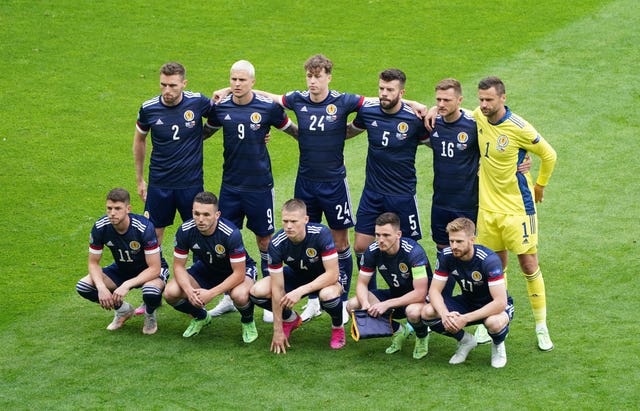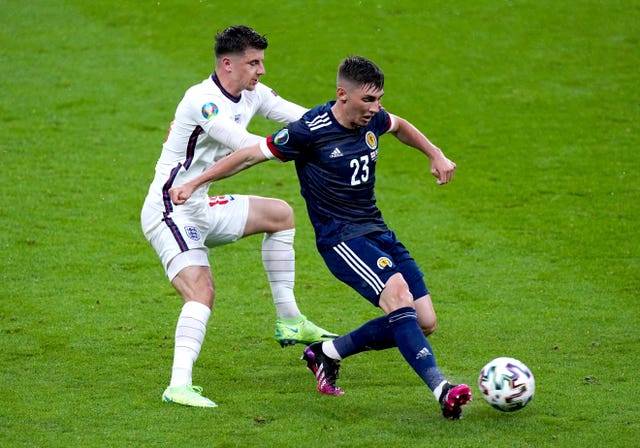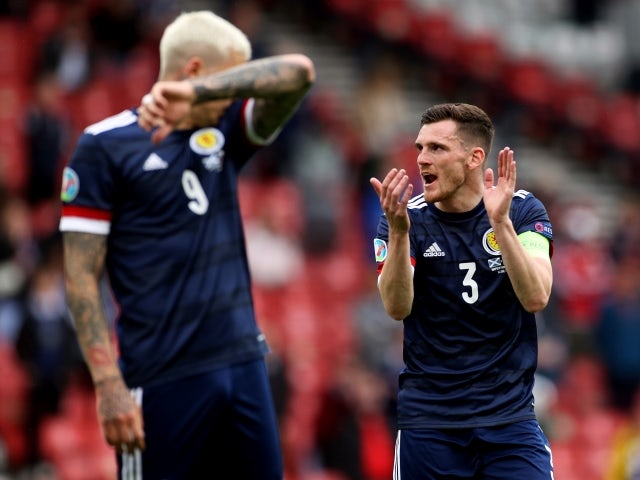After a 23-year absence from the big time, new generations of Scots were introduced to the initial euphoria and shattering disappointment of following their nation in major tournaments.
Despite the long wait, it was a depressingly familiar story of hopes rising when least anticipated and expectations not being met when it really mattered.
A goalless draw at Wembley provided much cheer but it was sandwiched by two Hampden defeats and ultimately offered little more than a brief wobble in England's march to the final.
Scotland headed into the finals on a resilient run of form – they had lost just two of their previous 16 games, both of which were narrow defeats in the wake of extended celebrations following play-off success against Serbia.

But a lack of experience and goals up front was always a concern. Scotland arrived with three strikers with 19 caps and five goals between them. They were the last team to score in Euro 2020 and couldn't add to Callum McGregor's equaliser against Croatia.
Scotland's preparations for their opener against the Czech Republic were hit by a late injury to Kieran Tierney. Steve Clarke had devised his system to accommodate both the Arsenal left-back and his Liverpool counterpart Andy Robertson and it never quite worked without the former Celtic player.
Leeds centre-back Liam Cooper replaced Tierney against the Czech Republic and defended well, plus was safe in possession. But Scotland missed the thrust Tierney provided in the back three.
🇨🇿 Patrik Schick 𝗚𝗢𝗟𝗔𝗭𝗢! 🔥 Will there be a better effort than THIS in the first round of games? @GazpromFootball | #EUROGOTR | #EURO2020 pic.twitter.com/skA67Yqeik — UEFA EURO 2020 (@EURO2020) June 14, 2021
A lack of finishing prowess also told as Scotland lost to a clinical Patrik Schick double.
Clarke waited until midway through the second half before putting on a midfielder for one of his three natural centre-backs and until the 79th minute for James Forrest to add some more attacking threat.
It was too little, too late. Although Scotland had 58 per cent of possession and 19 efforts at goal, most of them were blocked.
Tierney recovered to face England and both he and Scott McTominay started in the back three as Clarke produced a bold team selection which included 20-year-old Billy Gilmour making his first start.

Gilmour excelled and Scotland enjoyed the better of the chances with Stephen O'Donnell coming closest to breaking the stalemate in a performance which defied the Motherwell right-back's critics.
Clarke had told his men they needed a point to retain hope of qualifying and it gave them the platform to progress against a Croatian side which had looked a shadow of the team that reached the World Cup final three years earlier.
Scotland had never lost to Croatia in five previous meetings and had only lost consecutive competitive games at Hampden once in the previous 69 years.
🇭🇷 With a goal, assist & 91% passing accuracy, Luka Modrić is your Top Performer for Matchday 3 👏👏👏@FedExEurope | #EUROPZ | #EURO2020 pic.twitter.com/I46ri6TNJD — UEFA EURO 2020 (@EURO2020) June 25, 2021
But final group matches of major tournaments normally see Scotland ride a wave of emotion which peaks with major hope and ends with crushing disappointment. And this was no different.
It all started with Gilmour's positive Covid test and, although McGregor lifted a nation with a great strike, Croatia rediscovered their form with Luka Modric producing a world-class finish to regain the lead.
Clarke maintained his tactics and only introduced youngsters Kevin Nisbet and Nathan Patterson with six minutes left to overturn a 3-1 deficit.
"What we have done is create history coming here and we want this to be the start, not the end." 🏴💙 pic.twitter.com/2b1wuCvtit — Scotland National Team (@ScotlandNT) June 24, 2021
Seeing the youth of Scotland get behind the national team and experience their first major tournament was refreshing and there were plenty of plus points, including the performances of Grant Hanley, Gilmour, McGregor, Tierney and Robertson.
But, as the dust settled on two Hampden defeats in front of 12,000 fans and a Wembley trip that was at the centre of a mass Covid outbreak, Euro 2020 began to lose its sheen for the Tartan Army. Especially when the next-door neighbours started enjoying themselves a wee bit too much.









